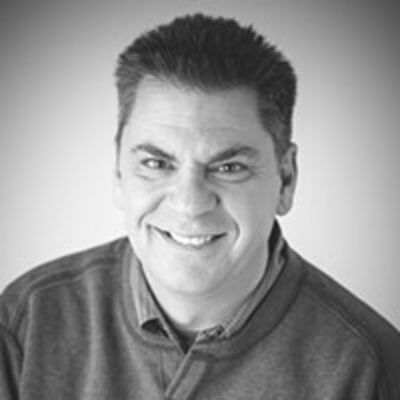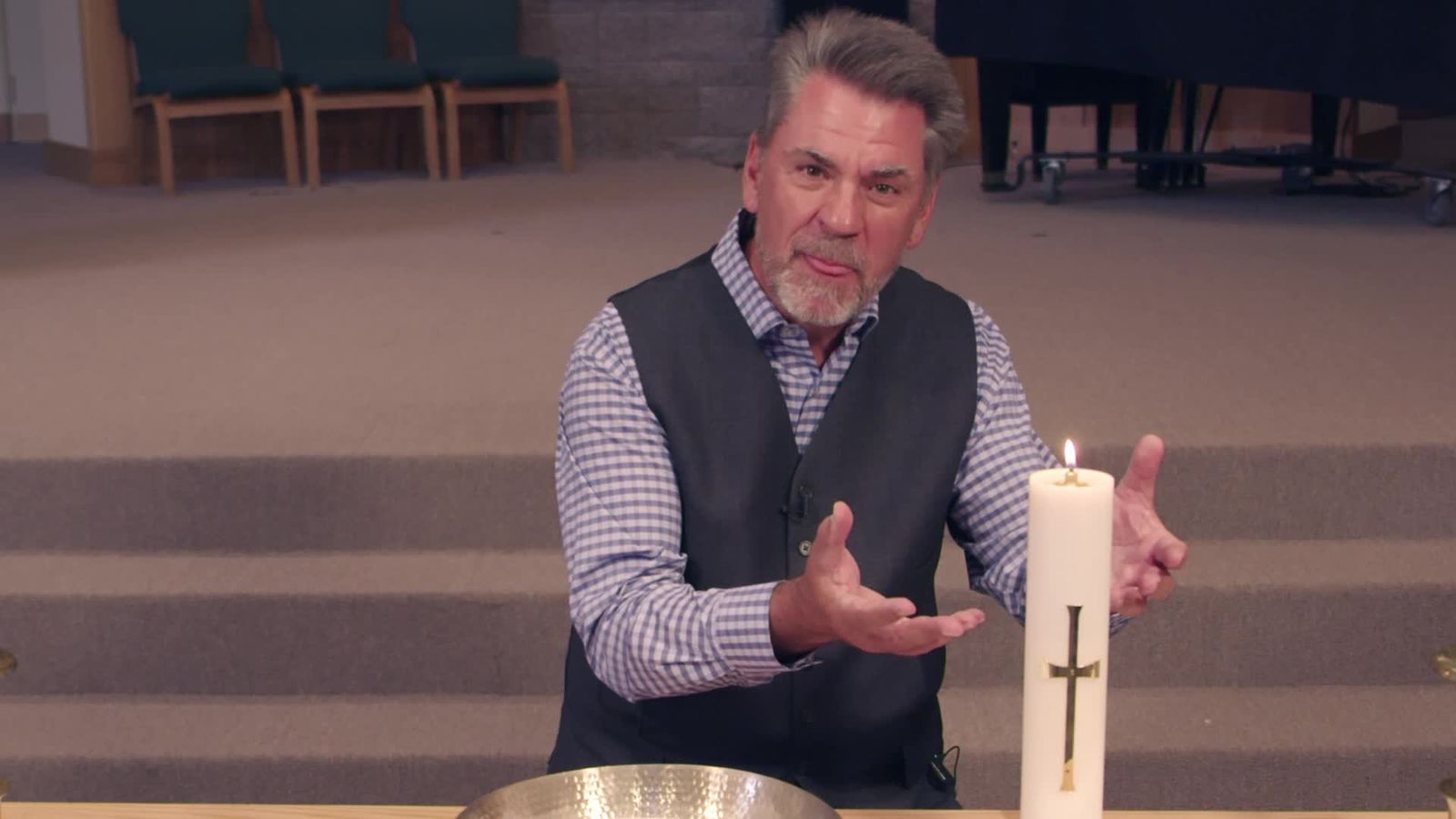Sep 17th: A Life Whose Purpose is to Love, with Rev. Dr. Steven Koski.
A Part of the Series:
Rev. Dr. Steven Koski
Other Articles in:
WATCH:
A Life Whose Purpose is to Love with Rev. Dr. Steven Koski. Series: Postures for a Christ-Centered Life A Spacious Christianity, First Presbyterian Church of Bend, Oregon. Scripture: Exodus 4.2; John 13.34-35.
You are enough to make a difference. Join us this Sunday as we explore how God empowers ordinary lives to do extraordinary things. Discover what God can do through you when you choose to be all in.
Transcript:
Our world is broken. We can’t fix the world, we can make a difference. I love the quote by Glenn and Doyle where she says, we don’t have to fix the whole world. But we can return our grocery carts.
In fact, you do make a difference you do make a difference every single day, by your sheer presence in the world, whether you know it or not. The question is, what kind of difference do you want to make? You know, our task is not to, to fix the whole world all at once.
Our task is to stretch out, and men the part of the torn fabric of the world that is within our reach.
September marks the transition from summer rhythms to the kickoff of a new school year. What I’m really excited about the kickoff to college and NFL football. It also marks the kickoff to a new church here, where we ask ourselves, what kind of difference are we called to make? In the world? Overwhelmed with bad news? How can our life be good news? You know, we often focus on on what we don’t have we focus on what’s missing or, or what we’re lacking. I want to invite you today to trust you already have all you need to be the difference the world needs.
Now, we love to ask God questions. But today as we kick off a new church here, I want to focus on a question that God asked each one of us. It’s found in the Book of Exodus chapter four. Where were God asked Moses.
What is that in your hand? Now for those who may not be familiar with the story, just let me give you a little bit of background. The pharaoh of Egypt commanded all Hebrew babies to be drowned in the Nile.
Moses, his mother hidden near a stream with a Pharaoh’s daughter bait. The princess found Moses and took him into her own household to be raised and, and Moses eventually became a prince.
Now older, Moses witnessed the Egyptian beating a Hebrew slave. And he intervened and, and ended up killing the Egyptian, he was forced to flee for his life. And he made a new life for himself in the Midian desert, he married, he worked as a shepherd tending his father in law’s flock. Now while tending the flock one day, Moses, here’s God’s, here’s God speaking to him from a burning bush, calling Moses to be the one who will lead God’s people out of slavery in Egypt.
Now Moses has this, this burning bush encounter at the age of 80. He’s to leave Midian, where he’s been a shepherd for the last 40 years, and go back to Egypt, where he’s wanted for murder. And his mission is to confront the most powerful military leader in the world, and be the deliverer of 1 million Hebrew slaves to freedom.
It’s not not surprising at all that Moses responds. Who am I? I’m, Who am I that I should go to Pharaoh and free the Israelites from slavery? You know, I think that’s another way of saying, Are you kidding? Are you kidding me? I actually got I think you’ve mistaken me for someone else.
Now Moses comes up with a whole bunch of excuses. Why he’s not the right man for the job.
What are your excuses? What are your excuses that prevent, prevent you from mending the torn fabric that is within your reach? Now, I want to read from Exodus chapter four, to actually see how God responds to our excuses. So Moses says to God, what if they don’t believe me, or listen to me? What if they think I’m foolish? And God response? What is that? In your hand? A shepherd staff, Moses replies, God says throw it on the ground. So Moses throws it on the ground, and the staff became a snake and Moses ran from it.
Then God said to Moses, reach out your hand and take it by the tail.
And it turned back into a staff in his hand. This God said is so that they may believe that the God of their fathers, the God of Abraham, the God of Isaac, the God of Jacob, has appeared to you.
So Moses tries to convince God that he’s just, he’s not the right person for the job. And that the Hebrew slaves, I mean, they will never believe that, that I’m capable of liberating them.
And God responds to his reluctance.
By simply asking him a question, asking us a question. What is that in your hand? Now Moses was holding what any good shepherd would would be holding a staff, a staff use to guide sheep. What does the staff a simple, ordinary, everyday tool in Moses toolbox? So the first thing we learned from God’s question, the question, what is that in your head? Is that we already have everything we need.
When we are willing to trust that, that our ordinary lives matter, that we can make a difference.
extraordinary things are possible.
You know, we often think we’re just not enough. You know, we think we’re not what we’re not spiritual enough, we’re, we’re not strong enough. We’re not talented enough, we’re not smart enough? Or we’re not confident enough. We’re too young or too old. We don’t have enough time. I mean, you fill in the blank, I am not enough. What would you say? You know, what are the excuses that prevent your life from being good news, to a world overwhelmed with bad news. And God says, What is that in your head? You are enough.
You already have everything you need. To make a difference in this world, you have everything you need to be the difference the world needs.
You know, we often don’t see ourselves made out of the same stuff that faith heroes are made of. It’s probably because we haven’t read our Bible very carefully. And very few of the characters God calls including Moses, are superhuman. In fact, they’re all very human, just like us.
And yet God uses these frail, imperfect, reluctant, broken, also ordinary people over and over and over again, to do extraordinary things.
You know, I often look at the people that I admire who those people who are making an impact in the world. And I often assume that they must possess some special quality that I don’t have that, that I’m not enough.
And God says, Don’t look over there.
What is that in your head? You you, you are enough.
You know the world has not changed by heroes. But by ordinary people like you and me, who choose love over fear to ordinary people like you and me who stretched to mend the torn fabric of this world that is within our reach ordinary people who ask a simple question every morning.
How can my life be good news today? How can my life be good news to those who are lonely? How can my life be good news to those who are sick and grieving? How can my life be good news to those who who are struggling with their mental health? How can my life be good news to the poor and the hungry? How can my life be good news to my family? How can my life be good news to this world overwhelmed with bad news? God as each one of us.
What is that in your head? You are enough? Not long ago and Kelly a longtime and faithful member of First Presbyterian died unexpectedly transitioning from this life to more life. You know I once asked and if she if she would consider leadership in the church and and said no.
Because I really I really don’t know what I believe about Jesus. I so wish I would have had the wisdom back then. To say to add, you know, and actually your theology about Jesus is really quite clear really quite evident. It’s expressed in the many houses you built with Don for Habitat for Humanity.
It’s expressed in the many bags that you sold for kids, for kids providing necessary hygiene products to homeless youth. It’s expressed in the mini quilts that you have made wrapping those who are suffering with warmth and care. I wish I would have said to and I honestly don’t think Jesus would have been too concerned that you’re not sure what you believe about him. Because you live your life doing your best to show the world what the spacious and radical love of Jesus looks like. God asked Dan, what is that in your head? And and responded, a hammer, a paintbrush, a sewing kit, quilt squares, and a servant’s heart stretching to mend the torn fabric of the world that is within my reach.
God asked Moses and each one of us what is that in your head.
And notice what happens next in the story. God makes a command, throw it on the ground.
Throw it, you know God doesn’t say gently and carefully place it on the ground. God says throw it we don’t think ourselves into a new way of acting.
We act ourselves into into a new way of being. It’s really interesting that the Hebrew translated as throw it literally means take up a challenge.
When you throw it down, you accept a challenge. It is a commitment to be to be all in.
You know we say things like I’m throwing down the gauntlet I’m I’m throwing my hat in the ring. It’s a bold, definitive declaration.
You already have all that you need to be the good deeds, the be the good news the world needs.
What does that look like for you? What does it look like for you to be all in? The story says that Moses threw his staff down. And it became a snake, a symbol of Barrows power, a symbol of his fear. And Moses in fear ran away.
And God told Moses to face his fear. The face is self doubt. God told Moses, I will be with you.
Grab hold of the snake, grab hold of your fear.
And when he did, it turned back into a staff.
A simple ordinary Shepherd staff that Moses used to free a nation thank God that God doesn’t expect us to be heroes to be something we’re not.
God simply asks what is that in your head? Reminding us we are enough.
We already have all that we need to mend the torn fabric of the world that is within our reach. And when we make the decision to be all in placing our ordinary lives in God’s hands. extraordinary things are possible.
And we just might free ourselves to live the lives that God intends for us.


